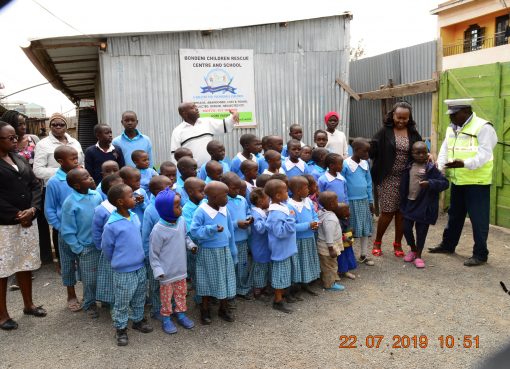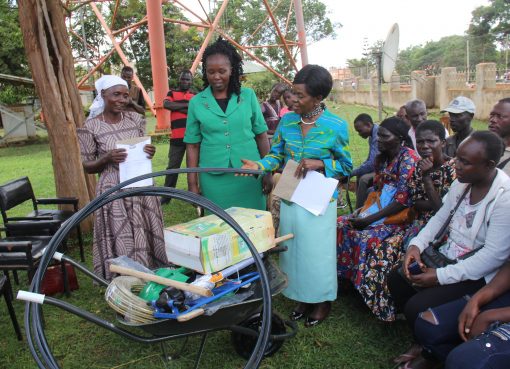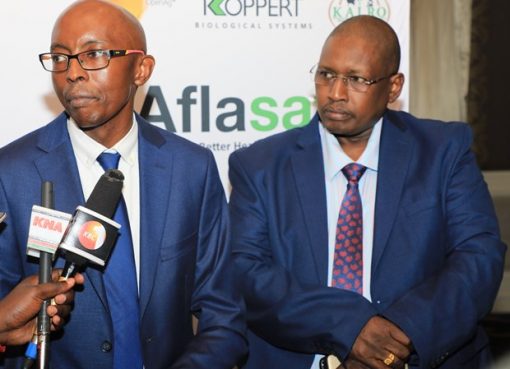The government has approved Sh550 million in grants to support the artisanal fishing industry and improve food security in coastal communities.
Mining, Blue Economy, and Maritime Affairs Cabinet Secretary Mr. Salim Mvurya said the support will be channelled through the Kenya Marine Fisheries and Socio-Economic Development (KEMFSED).
The KEMFSED project is being implemented by the Government of Kenya through the State Department for Blue Economy and Fisheries with support from the World Bank.
The KEMFSED project covers five coastal counties that border the Indian Ocean, including Kwale, Mombasa, Kilifi, Tana River, and Lamu, and aims to improve marine fisheries.
According to Mvurya, the project seeks to promote sustainable fisheries industries and aquaculture for national development by protecting fisheries’ livelihoods. He said artisanal fisheries provide crucial contributions to livelihoods, food and nutrition security, and the well-being of coastal communities.
The CS, who was accompanied by the Blue Economy and Fisheries Principal Secretary, Ms. Betsy Njagi, said the national government has rolled out initiatives to transform the fisheries sector for enhanced livelihoods and job creation.
Mvurya said the funding will support fishing activities in the coastal counties, where fishermen in Lamu will receive Sh. 63 million, Tana River Sh. 32 million, Kilifi Sh. 190 million, Mombasa Sh. 151 million, and Kwale Sh. 114 million.
The CS made the disclosure when he accompanied President William Ruto during his recently concluded development tour of the coastal region. He said the government was cognizant of the fact that small-scale and traditional fishers make the greatest contribution to the country’s total fish production.
Consequently, the government is investing in projects to revamp the fisheries sub-sectors in a bid to increase access to complementary livelihood activities in coastal communities.
According to the CS, the government was revamping fish landing sites with modern facilities, including cold storage, ice plants, and markets, to revive coastal fisheries.
He noted that the cold storage facilities and fish markets in the coastal villages will enable fishermen to keep their catch fresh for a long time and control prices.
“The fish landing sites and market projects will greatly enhance the blue economy and fisheries value chain,” he said.
The CS further said, “The blue economy’s development and growth have great potential for the economy of our country and the social development of our people.” The blue economy sector covers a wide range of economic activities within coastal communities, such as fisheries, aquaculture, maritime transport, and tourism.
Mvurya said the national government was taking deliberate steps to make the fishing sub-sector lucrative and vibrant so as to serve as a source of employment and improve livelihoods.’
“The state department of the Blue Economy has also trained hundreds of coxswains and distributed modern fishing boats to help fishers boost their productivity and improve their overall socio-economic welfare,” he said, adding that coxswains were also trained in deep sea fishing to create jobs for the local fisher communities.
Equally, the ministry has been empowering fishermen in the coastal region with outboard engines and the provision of boats and nets, among other things, to support their fishing operations. “Our resolve is to transform activities in the blue space into more productive and profitable economic ventures,” said Mvurya.
Meanwhile, the coastal counties have been distributing fishing fibreglass boats with nets and outboard motors, cooler boxes, bond liners, GPS gadgets, and life jacket floats to fishermen in a bid to turn fishing into a profitable venture.
At the same time, the government will continue dealing with illegal, unreported, and unregulated fishing as well as depleting marine fish stocks, which have far-reaching implications for posterity.
By Hussein Abdulahi





